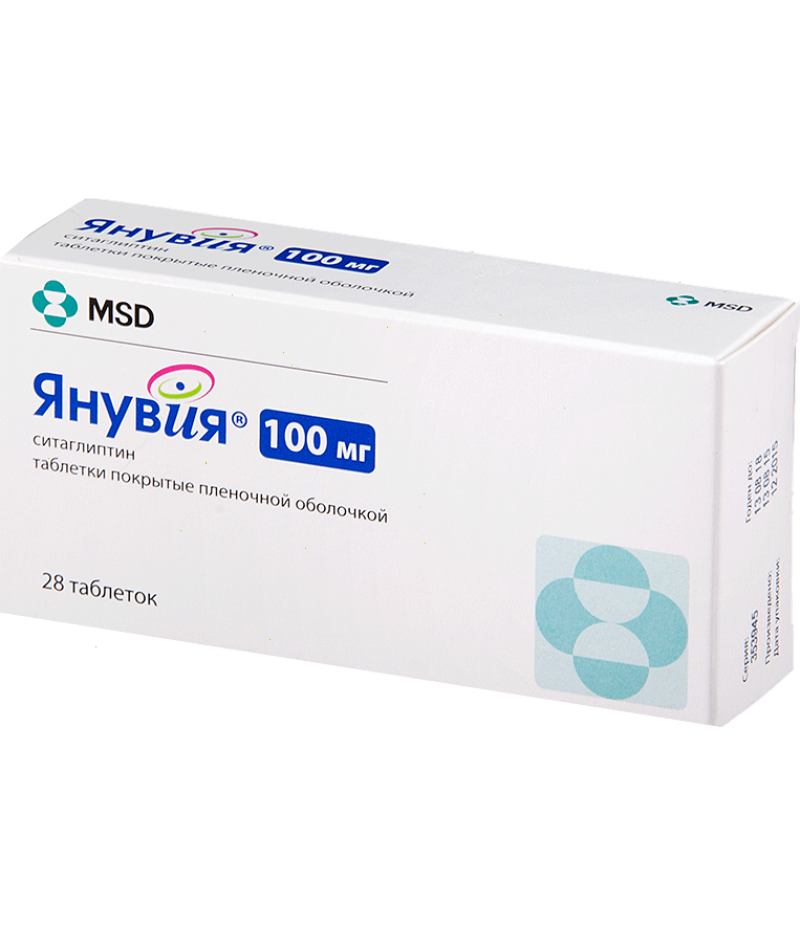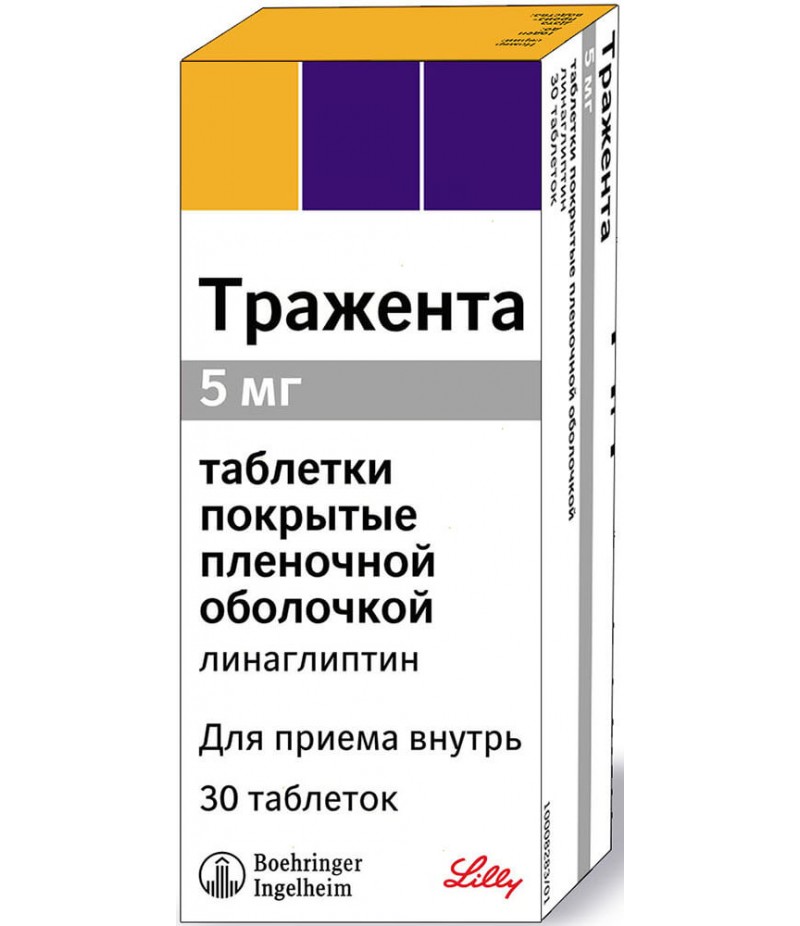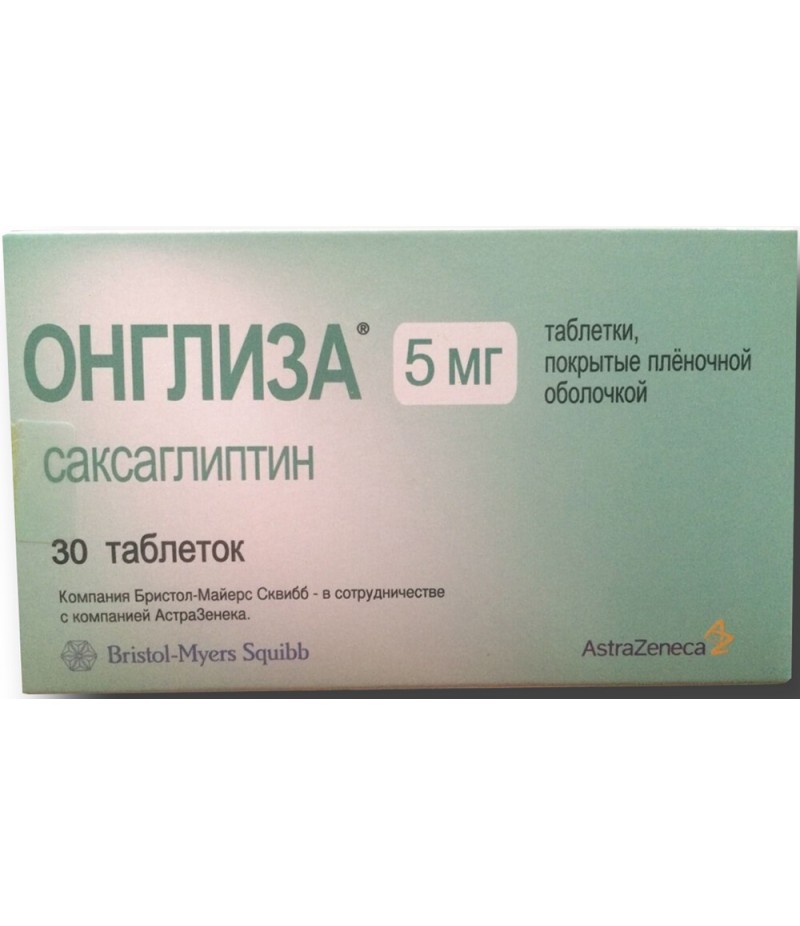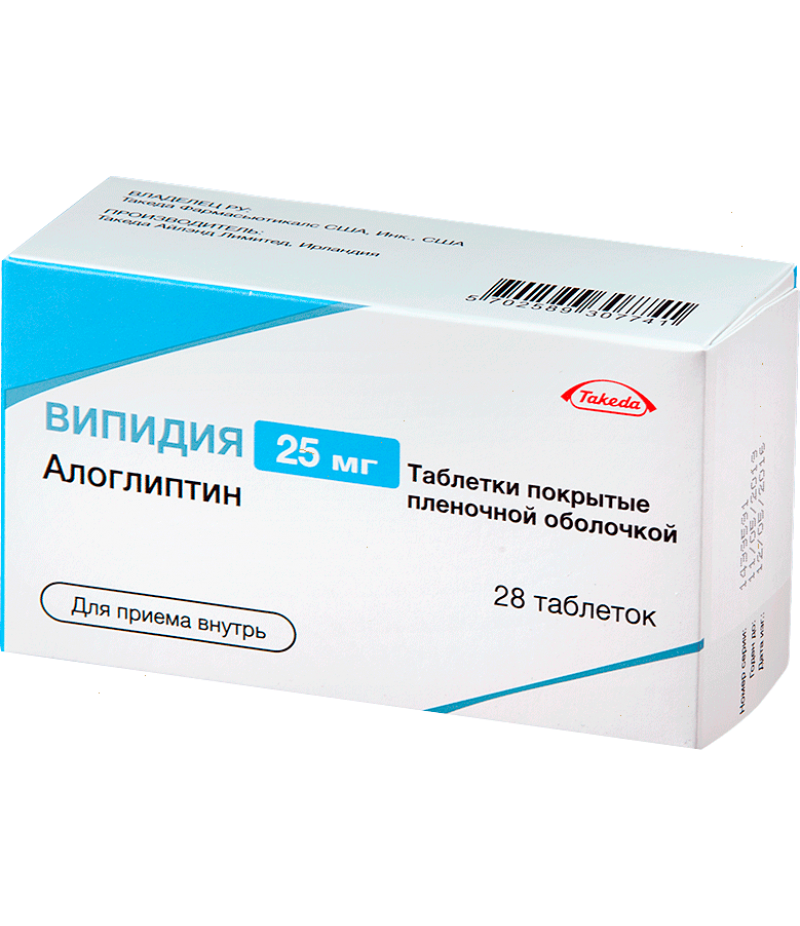Januvia tabs 100mg #28
- $63.53
- 2 or more $62.60
- 3 or more $61.75
- Availability:In Stock
Januvia user manualYou can buy Januvia hereCompositionOne tablet of Januvia remedy may include 100 mg, 50 mg or 25 mg of sitagliptin.Additional substances: calcium hydrogen phosphate, microcrystalline cellulose, magnesium stearate..
Januvia user manual
You can buy Januvia here
Composition
One tablet of Januvia remedy may include 100 mg, 50 mg or 25 mg of sitagliptin.
Additional substances: calcium hydrogen phosphate, microcrystalline cellulose, magnesium stearate, croscarmellose sodium, sodium stearyl fumarate.
The composition of the shell: polyvinyl alcohol, Opadry 2 beige, titanium dioxide, yellow iron oxide, talc, macrogol 3350, red iron oxide.
Form of issue
Beige biconvex tablets of round shape, engraved "277". 14 tablets in a contour package, two packages in a cardboard bundle.
pharmachologic effect
Hypoglycemic action.
Pharmacodynamics and pharmacokinetics
Pharmacodynamics
A hypoglycemic preparation for oral administration, a highly selective dipeptidyl peptidase-4 blocker. It differs in structure and action from insulin, biguanides, sulfonylurea derivatives, γ-receptor agonists, alpha-glycosidase blockers, analogs of glucagon-like peptide 1 and amylin. By blocking dipeptidyl peptidase-4, sitagliptin increases the level of two known hormone-incretins: an insulinotropic glucose-dependent peptide and a glucagon-like peptide.
These hormones are secreted in the intestines, and their level increases in response to eating. Incretiny is part of the internal system of glucose metabolism regulation. With a normal or increased content of plasma glucose hormones, incretins promote stimulation of insulin synthesis and its release to the pancreas.
Glucagon-like peptide 1 also promotes inhibition of increased glucagon secretion by the pancreas. Reducing the glucagon content against a background of increased insulin levels causes a decrease in glucose synthesis by the liver, which ultimately leads to a decrease in glycemia.
At a low concentration of glucose in the plasma, the above-mentioned effects of these hormones-incretins on insulin secretion and suppression of glucagon secretion are not recorded. Glucagon-like peptide 1 and insulinotropic glucose-dependent peptide do not affect the release of glucagon in response to the development of hypoglycemia.
Sitagliptin inhibits incretin hydrolysis with the enzyme dipeptidyl peptidase-4, thereby increasing the plasma levels of the active forms of the glucagon-like peptide 1 and the insulinotropic glucose-dependent peptide. Increasing the content of incretins, sitagliptin increases glucose-dependent insulin secretion and promotes inhibition of glucagon secretion. In individuals with type 2 diabetes mellitus on a background of hyperglycemia, these changes in the production of insulin and glucagon cause a decrease in the concentration of glycated hemoglobin and a decrease in the level of glucose in the blood.
In individuals with type 2 diabetes, taking a standard dose of Januvia reduces the activity of the enzyme dipeptidyl peptidase-4 during the day, which causes an increase in the content of circulating incretins (glucagon-like peptide 1 and insulinotropic glucose-dependent peptide) by 2-3 times, increasing the concentration of insulin and C peptide in the plasma, a decrease in the level of glucagon in the blood, a decrease in fasting glycemia.
Pharmacokinetics
After consuming 100 mg of the drug, rapid absorption of sitagliptin is observed, reaching the highest content in the blood after 1-4 hours. Absolute bioavailability is about 87%. Simultaneous consumption of fatty foods does not alter the pharmacokinetics of sitagliptin.
The binding of the active substance to plasma proteins reaches 38%.
Only a small part of the drug is transformed. 16% of the dose is released in the form of metabolites. There are six metabolites of sitagliptin, which probably do not possess its activity. The primary enzymes responsible for the metabolism of sitagliptin are CYP2C8 and CYP3A4. Up to 79% of the drug is excreted in its original form with urine. The half-life of sitagliptin is approximately 12.5 hours.
Indications for use
In the combined treatment of diabetes mellitus type 2 to strengthen control over glycemia in combination with PPAR-γ or Metformin agonists, when physical activity and diet in combination with monotherapy with the above mentioned means do not allow controlling glycemia.
Monotherapy with the drug as a supplement to physical exercise and diet to strengthen control over glycemia in people with type 2 diabetes.
Contraindications
type 1 diabetes mellitus;
pregnancy and lactation;
diabetic ketoacidosis;
hypersensitivity to the components of the drug;
it is not advisable to prescribe the drug to persons under 18 years of age.
It is advisable to prescribe cautiously to patients suffering from kidney failure. If the work of the kidneys is moderate and severe, patients with terminal stage of this conquest who need hemodialysis need correction of the regimen.
Side effects
Respiratory disorders: respiratory infections, nasopharyngitis.
Disorders from the nervous activity: headache.
Digestive disorders: abdominal pain, diarrhea, vomiting, nausea.
Disorders from the musculoskeletal system: arthralgia.
Disorders from the side of immunity: hypoglycemia.
Disorders from the laboratory data: an increase in the content of uric acid, a slight decrease in the concentration of alkaline phosphatase, an increase in the number of neutrophils.
Januvia, instructions for use (Method and dosage)
The instruction for Januvia sets the recommended dose of the drug when applied as monotherapy or in combination with other medicines in 100 mg daily.
The drug is allowed to take regardless of food. If the patient forgot to take the medicine, then it is necessary to take this dose as soon as possible. Do not take a double dose of the drug.
With a mild degree of renal failure, dosage adjustment is not required.
With a moderate degree of renal failure, the dose should be 50 mg daily.
In severe renal failure and in patients with the final stage of kidney failure, and if hemodialysis is necessary, the dosage of the drug is 25 mg daily.
Overdose
Signs of an overdose: with the simultaneous administration of 800 mg of the drug, minimal changes in the QTc interval were detected. Clinical studies of drug intake in a dose of more than 800 mg per day were not conducted.
Treatment of overdose: gastric lavage, intake of enterosorbents, monitoring of vital signs, maintenance and symptomatic therapy.
The active substance is poorly dialyzed.
Interaction
There was a slight increase in the maximum digoxin concentration when combined with sitagliptin.
There was also an increase in the increase in the maximum concentration of sitagliptin in patients when used together with Cyclosporin.
Storage conditions
Store at temperatures up to 30 ° C. Keep away from children.
Shelf life - 2 years.
special instructions
During clinical trials of the drug, the incidence of hypoglycemia in its use was similar to that of placebo.
Patients with compensated hepatic insufficiency do not need to change the dosage of the drug.
Children
Do not prescribe the drug to people under the age of 18.
In pregnancy and lactation
These periods are contraindications for the use of the drug.
Reviews about Januvia
Almost all the reviews about Januvia highly evaluate the results of the drug treatment with the above indications. Widespread use of the drug limits its high cost.




